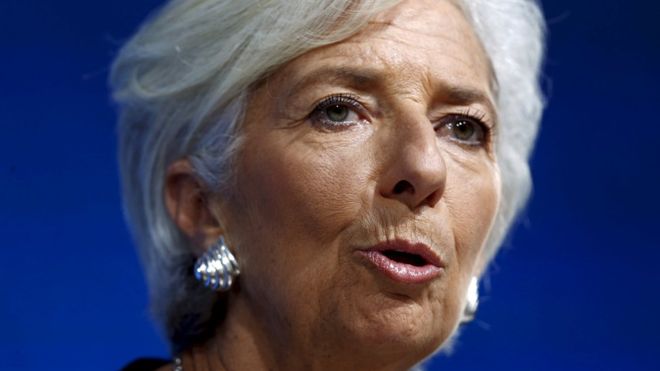Giuseppe Sandro Mela.
2021-11-19.

«Latest ECB rate-hike pushback turns euro into falling knife.»
«The European Central Bank’s latest comments on inflation have thrown another grenade in the way of the euro»
«Already down more than 7% against the dollar this year, the euro fell against every major currency»
«He added that a stricter policy will now only halt economic recovery»
«Its stance pits the euro against peers that are backed by policy-tightening hopes»
«With the ECB still insisting that interest rates will not go up next year, there is no point in trying to catch a falling knife»
«The single currency is trading at a 16-month low against around $1.13»
«Derivatives markets, where traders often place directional bets, indicate that the bearish trend has increased over the past two sessions»
«the ECB is expected to harden 12.5 bps next year, down from 20 bps that investors valued last week»
«Much of the euro recession is based on the expectation that the Fed will apply the brakes to a racing US economy»
«expects the greenback to be broadly stronger next year, pushing the euro to $1.10 by the end of 2022»
«Yet investors appear unprepared for the euro’s weakness»
«But even in the derivatives markets, investors are positioned for the strength of the euro, with nearly $7 billion of options bunched around the $1.15 level for the end of November»
«the Fed could raise rates and that could make it difficult for the euro to return much ground against the dollar»
* * * * * * *
Gli ultimi commenti della Banca Centrale “hanno lanciato un’altra granata sulla strada dell’euro”.
In cambio di politica monetaria “will now only halt economic recovery”.
Così, ci si deve aspettare tassi di interesse negativi ed euro sempre più debole.
Anche se tutte le transazioni internazionali avvengono in dollari.
* * * * * * *
Analysis-Latest ECB rate-hike pushback turns euro into falling knife.
London (Businesshala) – The European Central Bank’s latest comments on inflation have thrown another grenade in the way of the euro.
Already down more than 7% against the dollar this year, the euro fell against every major currency, ECB President Christine Lagarde said on Monday, effectively defying currency markets’ hopes of a 2022 interest rate hike. He added that a stricter policy will now only halt economic recovery.
Its stance pits the euro against peers that are backed by policy-tightening hopes – in the case of the British pound, a rate hike could happen as soon as next month. The market also sees the US Federal Reserve hiking through to mid-2022, bets that have not been conclusively refuted by the Fed.
“With the ECB still insisting that interest rates will not go up next year, there is no point in trying to catch a falling knife,” said Société Generale strategist Kenneth Brooks.
“The rallies in the euro have been completely sold out since September and investors are not abandoning this strategy.”
The single currency is trading at a 16-month low against around $1.13. Against the pound, it is near levels not seen since the start of the pandemic, while against the Australian dollar it is near March lows.
Despite Swiss interest rates being lower than the ECB, it is also hovering near 2015 lows against the Swiss franc.
Also the pricing is going to be in weakness in the near term.
Derivatives markets, where traders often place directional bets, indicate that the bearish trend has increased over the past two sessions. One-month contracts for the volatility of the underlying euro/dollar – which now includes the ECB’s December 16 meeting – have risen full percentage points over the past 24 hours.
These indicate greater currency volatility, indicating an increase in the risk premium.
The three-month euro risk reversal – a gauge of demand for options on a rising or falling currency – shows the lowest premium for “calls” since May 2020 to “puts”.
Puts and calls allow holders to sell or buy respectively.
Even now, the ECB is expected to harden 12.5 bps next year, down from 20 bps that investors valued last week.
Raw
Much of the euro recession is based on the expectation that the Fed will apply the brakes to a racing US economy; Retail sales beat forecasts in October despite high inflation.
Mark Heffele, CIO of UBS Global Wealth Management, expects the greenback to be broadly stronger next year, pushing the euro to $1.10 by the end of 2022.
For Europe, a 2022 rate hike always seemed a tall order despite inflation running above the ECB’s 2% target, while the recent spike in COVID-19 cases risks setting growth back.
The economic surprise index compiled by Citi shows European data lag behind their US counterparts by the biggest margin in more than a year.
Yet investors appear unprepared for the euro’s weakness, possibly betting that the Fed’s uptick will go along with others.
Data shows hedge funds “long” the euro in recent weeks, turning $1.4 billion in its favor. Lagarde’s comments may melt some of those bets.
But even in the derivatives markets, investors are positioned for the strength of the euro, with nearly $7 billion of options bunched around the $1.15 level for the end of November.
That could change as expectations for US rate hikes strengthen.
Spreads between the euro zone and US interest rate futures expiring in December 2022 are the highest in favor of the latter since November 2020, and BofA Securities’ monthly survey expects investors to expect around 1.5 Fed rate hikes in 2022.
By the second half of 2022, “the Fed could raise rates and that could make it difficult for the euro to return much ground against the dollar,” said Jane Foley, head of FX strategy at Rabobank.